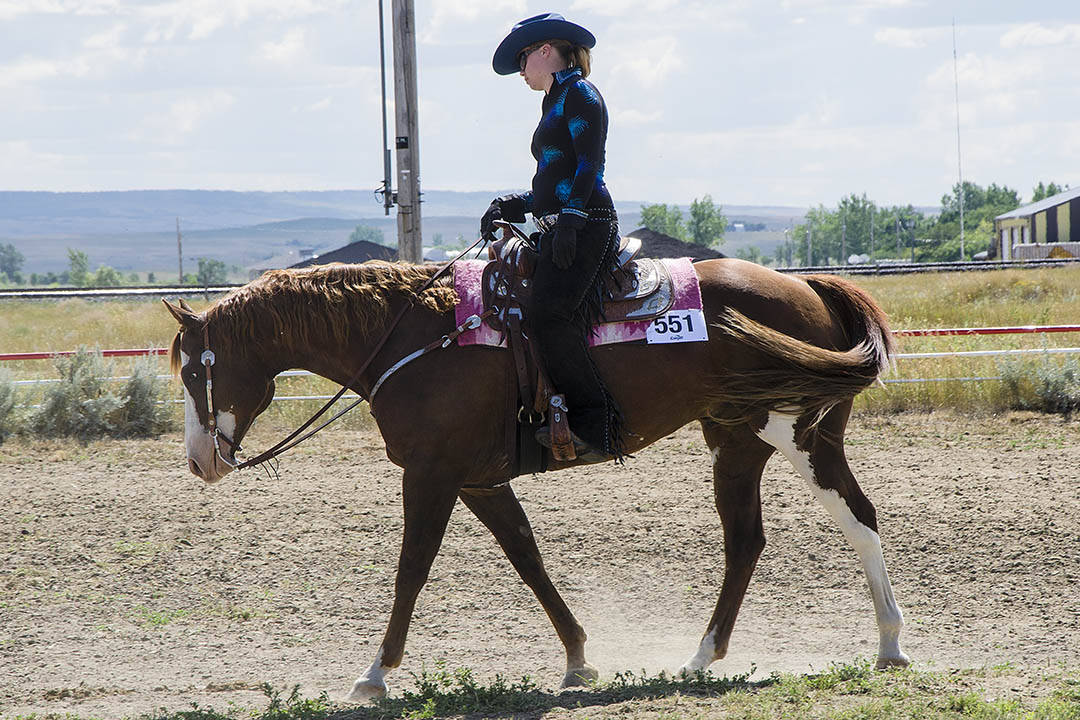
Innovation in horse rehabilitation
Samantha Steinke was born to ride. In fact, the University of Saskatchewan student essentially rode her first horse before she was even born.
By James Shewaga“My mom was riding when she was pregnant with me, so it started before I was born,” said Steinke, who graduated with a Bachelor of Science Honours (physiology and pharmacology) degree at U of S Spring Convocation on June 5 at TCU Place. “I was led around on a horse when I was an infant and I took my first riding lessons when I was just six, so it was a big part of my childhood. If I was ever stressed about something, I would just go for a ride, so you develop a very special connection with your horse.”
It was that connection with her horse Cash that made the spring of 2016 so devastating. While writing her final exams at the U of S, Steinke learned that her horse had stepped on a piece of metal on the family farm—located 220 kilometres southwest of Saskatoon—puncturing the sole of his left front hoof and cutting through the tendon. Despite the best efforts of veterinarians, and due to the very poor prognosis and complicated nature of the injury, Steinke was forced to make the agonizing decision to put him down.
“It was one of the hardest decisions that I have ever had to make, and that all occurred during final exams, so it was pretty stressful,” she said. “I was trying to find anything that I could to save him. But the only option was surgery followed by a very long recovery period and a very high likelihood of never fully recovering. He would have always suffered. So, there was just nothing we could do.”
That devastating loss has driven Steinke to find a better way to treat injured horses. She began working with Dr. Julia Montgomery in 2016 in the Western College of Veterinary Medicine (WCVM), helping a WCVM research team design a weight-supporting harness to better rehabilitate horses with limb injuries. Local firm RMD Engineering Inc. also helped with the project and Steinke is working with the company for the summer to create a breast plate to prevent pressure sores as horses heal.
“I want to develop equipment to help horses recover from severe injuries, keeping their comfort and welfare in mind,” said Steinke, who competed on the Saskatchewan Horse Federation show circuit in high school and now volunteers with the U of S Rodeo Team. “So, a really bad situation has given me a new outlook and the drive and passion to do all that I can to help in the future. Even though it was really, really hard and is not something that I would want to go through again, it also helped me find my way because I didn’t know what I wanted to do and now I do.”
Steinke, who posted an average of 82.33 per cent in her final year of classes, has now been accepted into graduate studies at the U of S and wants to continue to develop better equine rehabilitation equipment while working on her master’s in the College of Engineering’s biomedical engineering graduate program.
“When a horse suffers from a leg injury, complications often arise in recovery, resulting in euthanasia, so this equipment would take the weight off of their legs, allowing them to heal,” said Steinke. “Right now, we are able to take about 40 to 50 per cent of the weight off their legs for the short term. The target would be to take 50-60 per cent of the weight off their legs long term, to help them heal.”
Steinke hopes to present her research at the International Conference on Equine Exercise Physiology in Australia in November. In the meantime, Steinke is preparing for grad school and reflecting on her time on campus.
“I have tried a little bit of everything here. I have taken some business classes and I have taken some arts classes and just kind of dipped my toes in a little bit of everything and it’s a great experience to be able to do that,” said Steinke, whose time at the U of S has also included serving as a speakers co-ordinator for the Global Health Conference committee, volunteering as a team leader for U of S Orientation, and a trip overseas to Africa following her first year of studies to work as a humanitarian mission volunteer in Tanzania.
“It has been a long time coming and to have finished my first degree is great,” said Steinke. “It’s the first milestone, so it’s very exciting to have that completed and to move on to something new. I cannot wait to continue my studies and see what the future holds.”

